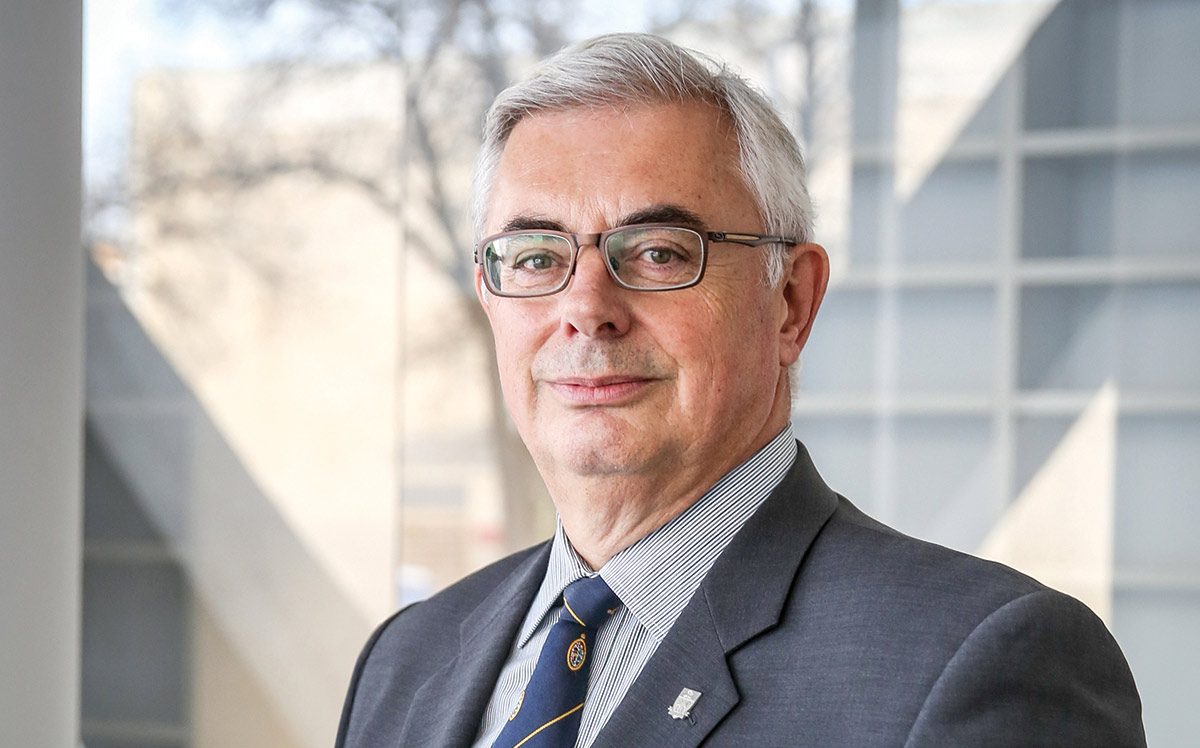
Global Village
Fall 2017
It was a University of Manitoba alumnus—philosopher and author Marshall McLuhan—who first introduced the concept of a “global village.”
McLuhan [BA(Hons)/33, MA/34, DLitt/67] crafted the ingenious and durable metaphor to capture how advanced electronic media had shrunk the globe to the size of a village through the instantaneous movement of information.
And his keen conceptualization holds as true today as ever before.
With the Internet, people everywhere around the globe are able to connect with one another, no matter the physical distance between them, in increasingly meaningful and intimate ways. What I find just as fascinating, however, is that McLuhan’s metaphor can also help us understand the accelerated patterns of global migration we are now experiencing.
In today’s world, populations are moving across the globe in increasing numbers and directions. Migrants, refugees, immigrants are breaking down the barriers between nations and cultures in much the same way technology has.
Our world is indeed a global village, with ideas, goods and populations moving rapidly and sometimes unexpectedly from one door to another. As a result, understanding and caring about the well-being of our neighbours are just as critical as in any village, anywhere.
At a university like ours, these interconnections can play themselves out in myriad ways. Our researchers, for example, often tackle problems ailing communities halfway across the globe; I think of colleagues working in Kenya and India in the ongoing fight to control and prevent the spread of HIV/AIDS.
Our scholars travel abroad to exchange ideas with peers at other universities, or host visiting professors to plant new ways of thinking right here in our own backyards.
And our students participate in a wide variety of international programs: service-learning projects, for example, where they travel to sites on other continents over Reading Week to provide assistance to communities in need; exchange programs, where our students spend part of the academic year studying at a university in one of dozens of nations; or even the simple but eye-opening exchange of cultures and ideas that occurs in the classroom each day, as domestic students interact with the thousands of international students who choose to study at the University of Manitoba.
These experiences broaden minds; they unite communities; they make the world a better place.
Between high school and university, before I turned 18, I participated in an international experience in Colombia, in the poorest barrios in the city of Cali, in the Valle del Cauca department, southwest of Bogotá. I remember vividly being dropped off in a bustling but underprivileged neighbourhood, and, as the vehicle that had transported me drove away, realizing suddenly that the world was much more complicated and dangerous but also more full of challenge and opportunity than I had ever imagined.
That same sense of wonder and of the interconnectedness of the world is something I hope all students are able to experience.
It’s all too easy to see people from other parts of the globe as “other than us” when we haven’t experienced what they experience every day.
International opportunities are important, even essential, I believe, because they bring people together; they breed friendships and collaborations; and, in the conceptual frame McLuhan developed, they “shrink” the globe.
Ultimately, they help us realize there is no other, only us.






